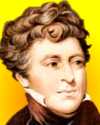
On 27 Dec 1790, James Blundell was born, an English obstetrician and medical researcher whose experiments led to a successful technique of human blood transfusion. Unless you are a medical student or practictioner, you likely have no idea who Blundell was, or what he accomplished. However, you'll find he was eminent enough to have an entry in Medical Portrait Gallery: Biographical Memoirs of the Most Celebrated Physicians, Surgeons Who Have Contributed to the Advancement of Medical Science (1840). From this you can learn more of the state of medical and surgical practice in the early 19th century, and what Blundell contributed.

On 27 Dec 1822, Louis Pasteur was born, a French chemist and a founder of microbiology who prepared important vaccines for several diseases. Today's book pick is: The Private Science of Louis Pasteur (Princeton Legacy Library), by Gerald L. Geison, by Gerald L. Geison, a Princeton University history professor. In giving Pasteur the close scrutiny his achievements and their darker sides deserve, Geison's book offers compelling reading for anyone interested in the social and ethical dimensions of science. Geison presents this unadorned truth after careful research from scrutinizing Pasteur's private papers and laboratory notebooks, available only in recent years. This biography considers the complexities of science as it is actually created, instead of merely clinging to comforting and heroic myths.
It is available from Amazon, typically about New from $51.47. Used from $4.05. (As of earlier time of writing - subject to change.)
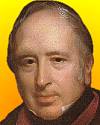 | I am well convinced that Aerial Navigation will form a most prominent feature in the progress of civilization. (1804) |
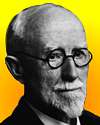 | There seems no limit to research, for as been truly said, the more the sphere of knowledge grows, the larger becomes the surface of contact with the unknown. |
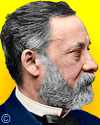 | Dans les champs de l’observation le hasard ne favorise que les esprits préparés. In the field of observation, chance favours only the prepared mind. |
| Before you look at today's web page, see if you can answer some of these questions about the events that happened on this day. Some of the names are very familiar. Others will likely stump you. Tickle your curiosity with these questions, then check your answers on today's web page. | |
| Births | |
 | Louis Pasteur, French microbiologist, was born 27 Dec 1822. His contributions were among the most varied and valuable in the history of science and industry. He proved that microorganisms cause fermentation and disease. How many diseases can you name for which Pasteur prepared vaccines? |
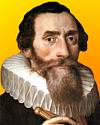 | A German astronomer, born 27 Dec 1571, discovered three major laws of planetary motion, conventionally designated as follows: (1) the planets move in elliptical orbits with the Sun at one focus; (2) the time necessary to traverse any arc of a planetary orbit is proportional to the area of the sector between the central body. Can you name this famous astronomer? |
| Deaths | |
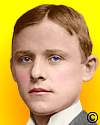 | Charles Martin Hall (1863-1914) was an American chemist and inventor who discovered the electrolytic method of producing a certain common metal from its ore into wide commercial use. Which metal did he make available at low cost? |
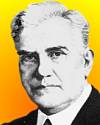 | Michael Owens (1859-1923) revolutionized an industry by mechanizing production with machines he invented for the purpose. For which industry did he introduce machinery? |
| Events | |
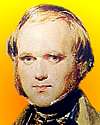 | On 27 Dec 1831, Charles Darwin set sail from Plymouth harbour on his voyage of scientific discovery aboard a British Navy ship. The Captain Robert FitzRoy was sailing to the southern coast of South America in order to complete a government survey. Darwin had an unpaid position as the ship's naturalist, at age 22, just out of university. Originally planned to be at sea for two years, the voyage lasted five years, making stops in Brazil, the Galapogos Islands, and New Zealand. What was the name of the ship? |
 | On 27 Dec 1956, proof was found of certain cases in the beta-decay of cobalt-60 which indeed did not obey a law which scientists had until then believed. The experiment was conducted by Madame Chien-Shiung Wu. A few months earlier, some scientists may have started to accept that could happen, when a theoretical paper by Lee and Yang proposed the law would have cases in which it was not upheld. What law was the subject of the work by Wu, Lee and Yang? |
Fast answers for the previous newsletter for December 26: germanium • Germany • portable defibrillator • computer • radium.
 If you enjoy this newsletter, the website, or wish to offer encouragement or ideas, please send feedback by using your mail reader Reply button.
If you enjoy this newsletter, the website, or wish to offer encouragement or ideas, please send feedback by using your mail reader Reply button. Your click on a Facebook, StumbleUpon, or other social button on the site webpages is also a welcome sign of appreciation. Thank you for using them.
© This newsletter is copyright 2019 by todayinsci.com. Please respect the Webmaster's wishes and do not put copies online of the Newsletter — or any Today in Science History webpage. (If you already have done so, please remove them. Thank you.) Offline use in education is encouraged such as a printout on a bulletin board, or projected for classroom viewing. Online, descriptive links to our pages are welcomed, as these will provide a reader with the most recent revisions, additions and/or corrections of a webpage. For any other copyright questions, please contact the Webmaster by using your mail reader Reply button.
--
If you do not want to receive any more newsletters, Unsubscribe
To update your preferences and to unsubscribe visit this link
Executive Real Estate Business Class
-
"It was like a man with wings. It wasn't like anything you'd see on TV or in a monster movie." ...
About the publisher
Search This Blog
Blog Archive
-
▼
2020
(1542)
-
▼
December
(121)
- On This Day for December 31 - Ottawa made capital ...
- Newsletter for Thursday 31 December.
- December 31: The Battle of Quebec, a Rainy Day in ...
- All That's Interesting's 10 Most Popular Stories O...
- On This Day for December 30 - Union of Soviet Soci...
- Newsletter for Wednesday 30 December.
- December 30: Creation of the USSR, the All India M...
- Know Better in 2021
- On This Day for December 29 - U.S. annexation of T...
- Newsletter for Tuesday 29 December.
- December 29: On This Day in History
- The Best of HISTORY This Week
- The 10 Best History Uncovered Articles Of 2020
- On This Day for December 28 - Westminster Abbey op...
- Newsletter for Monday 28 December.
- December 28: Galileo Observes Neptune, Harriet Tub...
- The death of Thomas Becket | The history of New Year
- On This Day for December 27 - Dutch transfer of In...
- Newsletter for Sunday 27 December.
- December 27: On This Day in History
- On This Day for December 26 - Indian Ocean tsunami...
- Newsletter for Saturday 26 December.
- December 26: 1st Spanish Settlement in the New Wor...
- The Anti-Santa Who Takes Naughty Kids To Hell, The...
- On This Day for December 25 - Christmas celebrated...
- Newsletter for Friday 25 December.
- December 25: Andrew Johnson's Christmas Pardon, Ce...
- On This Day for December 24 - Treaty of Ghent, Joh...
- Newsletter for Thursday 24 December.
- December 24: The Treaty of Ghent, Author Stephenie...
- Demystified Video: Why Is Christmas in December?
- On This Day for December 23 - Aleksander Kwaśniews...
- December 23: Van Gogh's Madness, the Partition of ...
- On This Day for December 22 - Alfred Dreyfus sente...
- Newsletter for Tuesday 22 December.
- December 22: An Impenetrable Fortress Falls, the 1...
- On This Day for December 21 - Radium discovered by...
- December 21: The Soviet Union Ends, Life in the Tr...
- A history of Christmas – from Oliver Cromwell to V...
- On This Day for December 20 - Macau made an admini...
- Newsletter for Sunday 20 December.
- December 20: US Buys Louisiana, the Viet Cong and ...
- On This Day for December 19 - Articles of impeachm...
- Newsletter for Saturday 19 December.
- December 19: On This Day in History
- The Soviet Executioner Who Killed 7,000 Poles One ...
- On This Day for December 18 - Slavery abolished in...
- Newsletter for Friday 18 December.
- December 18: The Yuan Dynasty Begins, Nuclear Powe...
- The perfect gifts for the curious kids in your lives!
- On This Day for December 17 - Flight of the Wright...
- Newsletter for Thursday 17 December.
- December 17: Tamerlane Sacks Delhi, the Wright Bro...
- Demystified: Do We Really Use Only 10 Percent of O...
- On This Day for December 16 - Boston Tea Party, Ja...
- Newsletter for Wednesday 16 December.
- December 16: A Boston Tea Party, the Battle of the...
- Haunting Kennedy Assassination Photos That Most Pe...
- On This Day for December 15 - Premiere of Gone wit...
- Newsletter for Tuesday 15 December.
- December 15: Vandals, Mongols and the US Bill of R...
- On This Day for December 14 - Roald Amundsen's arr...
- Newsletter for Monday 14 December.
- December 14: Amundsen and Scott's Epic Race to the...
- On This Day for December 13 - New Zealand sighted,...
- Newsletter for Sunday 13 December.
- On This Day for December 12 - U.S. Supreme Court d...
- December 12: A Generous Manhattan Gift, Bush v. Go...
- How eels powered the medieval economy | The histor...
- 55 Of History's Creepiest Pictures And Their Distu...
- On This Day for December 11 - Abdication of King E...
- Newsletter for Friday 11 December.
- December 11: The Mayflower Pilgrims, an Abdication...
- UPDATED: Britannica Year in Review: Story of the Year
- Britannica Year in Review: Story of the Year
- On This Day for December 10 - Encyclopædia Britann...
- Newsletter for Thursday 10 December.
- December 10: Spanish-American War, Edward VIII and...
- Laurence Fishburne Hosts a New HISTORY Digital Series
- Demystified: What's the Difference Between Whiskey...
- On This Day for December 9 - Lech Wałęsa elected p...
- Newsletter for Wednesday 9 December.
- December 9: Belisarius Enters Rome, Lech Wałęsa El...
- What will you discover this Thursday?
- On This Day for December 8 - John Lennon fatally s...
- Newsletter for Tuesday 8 December.
- December 8: Lincoln's Amnesty Proclamation, the US...
- On This Day for December 7 - Pearl Harbor attack, ...
- Newsletter for Monday 7 December.
- December 7: Birth of Plastics, Infamy in Pearl Har...
- History books of the year | Historical board games...
- On This Day for December 6 - Irish Free State esta...
- Newsletter for Sunday 6 December.
- December 6: Mongols Destroy Kiev, Slavery Abolishe...
- On This Day for December 5 - Witchcraft condemned ...
- Newsletter for Saturday 5 December.
- December 5: Gold Rush in California, End of Prohib...
- HNN Newsletter: You are now unsubscribed
- 10 Medieval Execution Methods That Are The Definit...
- On This Day for December 4 - Ivan the Terrible pro...
-
▼
December
(121)
-
Blogroll
-
About
HistoryFact










0 comments:
Post a Comment